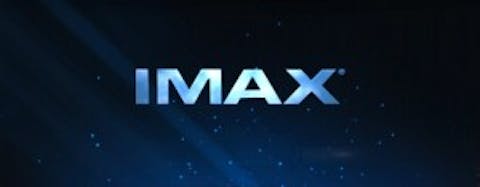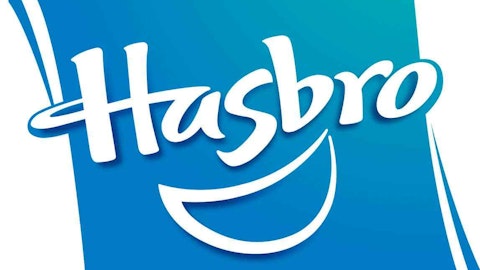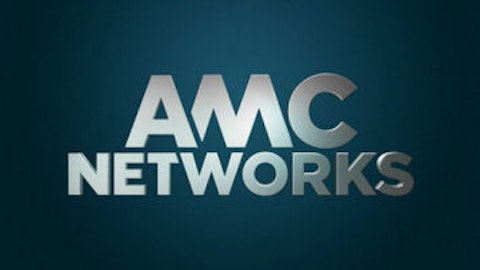
Analysts are drooling over the potential box office in China. The country is set to overtake the North American box office within ten years, with the possibility of a sooner five years. Domestic movies made up $1.11 billion of the first half box office, an increase of 144%. Imported films made 21% less at the box office, with a total of $675 million. In 2012, China passed Japan as the number two movie market. The potential in the country offers several investing opportunities.
Bona Film Group Ltd (ADR) (NASDAQ:BONA) is one of the purest plays on the Chinese movie market. The company, which went public at $8.50 a share in 2010, is now trading at half of its IPO price and offers a great opportunity in China. The company distributes movies, produces movies, owns a talent agency, and owns movie theaters in the country. This diversification provides a great investment to capture money from domestic and imported movies in China
In the company’s first quarter, revenues dropped to $43.3 million. The company released three movies, which did well, but were up against a strong 2012. Bona Film Group Ltd (ADR) (NASDAQ:BONA), which releases 16 to 20 movies a year, has a bright pipeline that includes several 3D movies, which will bring higher ticket prices.
More importantly, Bona Film Group Ltd (ADR) (NASDAQ:BONA) is increasing its theatrical presence. At the end of the first quarter, Bona had 20 movie theaters. In the first quarter of 2012, the company had only 12 theaters. Movie theaters made up 55% of first quarter revenue ($8.0 million). In the second quarter, Bona Film Group Ltd (ADR) (NASDAQ:BONA) will open two additional theaters.
Bona continues to power through with several North American partnerships. The company has deals with Fox International, Universal Pictures, and Working Title Films. More importantly, Bona Film Group Ltd (ADR) (NASDAQ:BONA) has a long term partnership with News Corp. In 2012, News Corp. bought 20% of Bona Films. Founder Yu Dong owns around 30% of the company. Bona Film Group Ltd (ADR) (NASDAQ:BONA) is a great investment into China’s strong box office potential.
Another option to play the Chinese movie market is IMAX Corporation (USA) (NYSE:IMAX). The large screen movie company ended the 2012 year with 731 theaters. The company’s huge backlog continues to power revenue and earnings, and is one of the reasons I am recently bullish on the company.
In January, IMAX Corporation (USA) (NYSE:IMAX) opened its 100th theater in China. The country continues to be an area of growth, as the Chinese are becoming more willing to pay premium money for movies. The company has a long term goal of 1700 theaters worldwide. In China, IMAX Corporation (USA) (NYSE:IMAX) sees the potential for 400 theaters, representing almost 25% of the company’s goal.
In July, IMAX Corporation (USA) (NYSE:IMAX) brought Keanu Reeves directorial debut “Man of Tai Chi” to IMAX Corporation (USA) (NYSE:IMAX) theaters in China. Invest in Imax to enjoy the success of China, with the baked in success of the North American box office as well.
The Walt Disney Company (NYSE:DIS) has long been known as the “happiest place on Earth.” That is true for the company in China as well. With several of the biggest blockbusters, The Walt Disney Company (NYSE:DIS) is in a great position to continue in China’s success. Recently released, “Iron Man 3” was the second highest grossing movie in the first half of 2013 for China. The movie made $123 million, placing behind domestic movie “Journey to the West: Conquering the Demons” ($204 million).
In fiscal 2012, The Walt Disney Company (NYSE:DIS)’s studio department was the third biggest business segment, behind media ($19.4 billion) and parks ($12.9 billion). The business segment saw revenue decline 8% to $5.8 billion. The segment did see profits jump 17% to $700 million. However, studio profits were a small piece of the $10 billion in annual profits.
The Walt Disney Company (NYSE:DIS)’s acquisition of Marvel brought it a huge cast of blockbusters, which has played well in China. The first “Iron Man” movie made $7.9 million in China. “Iron Man 2” made $15.3 million in China. The third movie saw huge growth in the franchise in China. “Avengers,” which also featured the Iron Man character made $84.1 million in China. With more Marvel movies coming, including “Avengers 2” in 2015, Disney is in a great spot to climb up the all-time charts in China.
The Walt Disney Company (NYSE:DIS) is also in a great position with one theme park in China and one on the way. Hong Kong Disneyland opened in 2005, and is attended by millions of visitors annually. In 2015, Shanghai Disney Resort is scheduled to open. Both of these parks allow Disney access to Chinese customers. The company can introduce characters and build up new releases.
For investors looking to profit from China’s growing box office, take a deeper look at any of these three names. Bona Film Group Ltd (ADR) (NASDAQ:BONA) is the most direct play on the Chinese market with films, talent, and theaters directly involved in China. IMAX Corporation (USA) (NYSE:IMAX) may represent the best way to profit from the box office, with its nice backlog of Chinese theaters and exposure to some Chinese language films. The Walt Disney Company (NYSE:DIS), on the other hand, is a great company with the added bonus of exposure to China. Investors should win with any of these three names going forward.
The article Three Ways to Play China’s Huge Box Office Potential originally appeared on Fool.com and is written by Chris Katje.
Chris Katje has a position in Imax. The Motley Fool recommends Imax and Walt Disney (NYSE:DIS). The Motley Fool owns shares of Imax and Walt Disney. Chris is a member of The Motley Fool Blog Network — entries represent the personal opinion of the blogger and are not formally edited.
Copyright © 1995 – 2013 The Motley Fool, LLC. All rights reserved. The Motley Fool has a disclosure policy.




